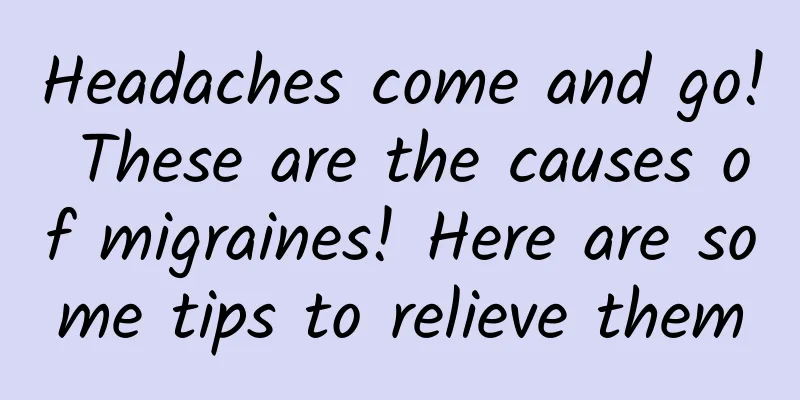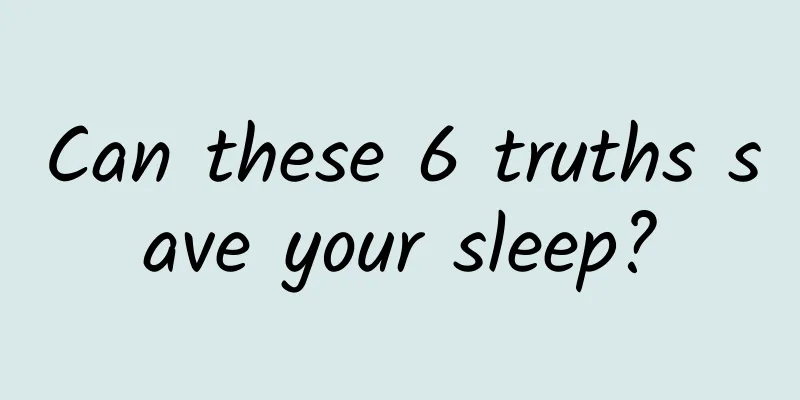Headaches come and go! These are the causes of migraines! Here are some tips to relieve them

|
Maybe I smelled some perfume. Seeing the poor homework done by the child I heard the sound of a drill going on upstairs. Not sleeping well, playing with mobile phone, drinking coffee … Migraines come and go It feels like a screwdriver drilling into your brain The hoe is digging at the back of the head A dozen people are having a party in their heads People who have not experienced migraines I don’t understand this kind of pain! About Migraine Migraine is a common neurological disease characterized by recurrent, mostly unilateral, moderate to severe throbbing headaches that usually last for 4 to 72 hours and are often accompanied by symptoms such as nausea, vomiting, photophobia and phonophobia. Migraines can occur at any age , and most often they first occur during adolescence. After adolescence, the incidence rate in women is significantly higher than that in men, and peaks around the age of 40. Specific smells, emotions, light, sounds, menstruation, and other factors can all trigger migraines. Repeated attacks of migraine can lead to white matter lesions and decreased cognitive function, and are comorbid with anxiety, depression, sleep disorders, etc. Some studies have also found that migraine may increase the risk of cardiovascular and cerebrovascular diseases. The 4 stages of a migraine 01 Prodromal stage Before a headache strikes, you may experience discomfort such as fatigue, lack of activity, change in appetite, recurrent burping, and a stiff neck. 02 Premonitory period Aura refers to the "alarm" that appears in the body before a headache occurs, which usually lasts 5 to 30 minutes, and generally does not exceed 60 minutes. Image source: Photo Network The most common is visual aura, which manifests as unilateral flashes, dark spots or water ripples, etc. In simple terms, it means that the eyes cannot see clearly and feel that there are spots or apertures in front of the eyes. 03 Headache period After the physical warning above, the most painful "headache period" comes. The typical headache of migraine is unilateral throbbing pain, but there are also bilateral or full head pain, which is mostly moderate to severe, with throbbing pain as the most prominent feature. When a migraine attacks, there are often symptoms such as loss of appetite, nausea, and vomiting. There is also increased sensory perception, which manifests as sensitivity to light, sound, and smell, and a preference for dark and quiet environments. A small number of patients will experience dizziness, orthostatic hypotension, irritability, difficulty expressing speech, memory loss, and inattention. 04 Recovery period Most patients' symptoms can be relieved by rest, but most patients may also experience fatigue, exhaustion, irritability, restlessness, inattention, scalp tenderness or other discomfort. Common triggers of migraine ● Endocrine factors: menstruation, ovulation, oral contraceptives, hormone replacement therapy; ● Dietary factors: alcohol, meat rich in nitrite, MSG, chocolate, cheese, irregular diet, etc.; ● Psychological factors: tension, stress release, anxiety, worry, depression; ● Environmental factors: bright light, flickering and other visual stimuli, smells, weather changes, high altitudes; ● Sleep-related factors: insufficient sleep, excessive sleep; ● Drug effects: nitroglycerin, cilostazol, reserpine, hydralazine, ranitidine, etc.; ● Other factors: head trauma, strenuous physical activity, fatigue, etc. What to do when you have a migraine 1. Maintain a healthy lifestyle Ensuring adequate sleep, exercising regularly, and quitting drinking are all effective ways to prevent it. 2. Avoid migraine triggers You can keep a diary to record the triggers of each migraine, such as diet, sleep, exercise and psychological factors, and try to avoid such triggers if possible. At the same time, avoid foods and drugs that can aggravate headaches, such as caffeine, alcohol, tobacco, etc. 3. Drug treatment Attention! Never take medicine randomly! Long-term excessive use of painkillers may cause the painkillers to become less and less effective, the duration of headaches will become longer and longer, and even lead to medication overdose headaches. In addition, the use of multiple painkillers may also put a burden on organs such as the liver and kidneys. Image source: Photo Network The correct way is to go to the hospital for consultation. The doctor will prescribe medicine based on the severity of the headache, accompanying symptoms, previous medication, and the patient's individual situation. 4. Others During the headache period, reduce activity and rest in bed as much as possible. You can listen to some soothing music to keep your body and mind relaxed. Acupuncture and massage have certain effects on migraine. Massage of different acupuncture points on the head, face and neck can often relieve pain. But please note that it is best to go to a regular Chinese medicine hospital or a Chinese and Western medicine clinic. I said, "Head, can you please stop hurting?" Head: "If I don't love you, no one will love you" Statement: This article is a medical-related educational popular science article. It does not involve specific treatment methods or medical behaviors and cannot replace hospital visits. References [1] Chinese Medical Association Neurology Branch, Chinese Society of Research Hospitals Headache and Sensory Disorders Committee, Dong Zhao, et al. Chinese Guidelines for the Diagnosis and Treatment of Migraine (2022 Edition)[J]. Chinese Journal of Pain Medicine, 2022, 28(12):881-898. [2] Li Shunwei, Li Yansheng, Liu Ruozhuo, et al. Chinese guidelines for the diagnosis and treatment of migraine[J]. Chinese Journal of Pain Medicine, 2011, 17(2):65-86. DOI:10.3969/j.issn.1006-9852.2011.02.001. Content Production Edit: 100% sweet Map: Eastern Zhou Dynasty |
Recommend
What medicine should I take for uterine inflammation?
Gynecological diseases always cause great harm to...
What to do if the number of follicles is greater than 12
Ovarian follicles play a very important role in w...
How long should estrogen testing be done?
There is a certain amount of estrogen in the fema...
Is it advisable to drink brown sugar water after giving birth?
Postpartum mothers need to adjust their bodies we...
One month pregnant, my belly is always swollen
Many women believe that there are very few physic...
Why do my nipples suddenly become very itchy?
A woman's nipples refer to the body parts loc...
What are the effective methods for women to train their vest lines?
As a woman, every one dreams of having a devilish...
What contraceptive measures should women take?
Contraception is an issue that many families take...
There is a pimple where the hair grows
If pimples appear in hairy areas of the body, it ...
Can I eat sesame paste during menstruation?
We know the importance of diet for women during m...
What are women's panty liners used for?
Girls spend 3 to 7 days of their menstrual period...
What causes pain below the uterus?
How important is the uterus to a woman? I believe...
Why do girls have more hair?
Almost all women want their skin to be particular...
The cause of lower abdominal obesity is cold uterus
Many women seem to have the same trouble, that is...









